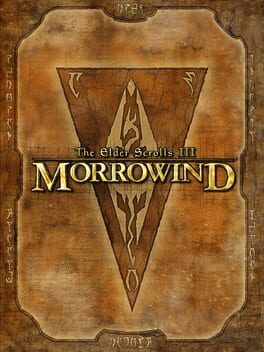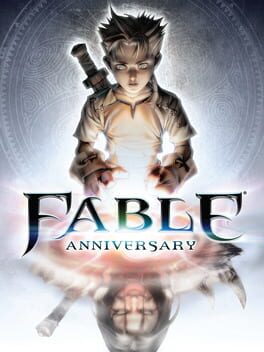BoggartBear
2 reviews liked by BoggartBear
Six years and a switch in directors, platform and setting led to their slowest but also their most intense and atmospheric work. Morrowind - however, is actually two games in one: The deliberate explorer and the moon-jumping alteration mage. The former is where the trademark 'haunting' component of dungeon-crawlers takes over the world, turning it into an agonizing wasteland in which the mood, weather, wildlife and natives are all hostile in their own way. It's also a classic example of exploration, first by dropping the tutorial dungeons, reducing fast travel to a paid service and - after a few minutes of walking and character creation, begins by wishing the player "good luck!". What comes next is perhaps the most 'involved' form of navigation ever. Via signposts, checking for directions (using a quest menu that takes after a messy journal) and frequent use of the map, players basically perform the gameplay loop of towns in prior TES games outwards. A similar process also affects its structure, as Daggerfall's dungeon verticality translates into complex world geometry (hills, mountains, valleys, even floating areas). The addition of random encounters (not only while resting, and whose rate becomes comical lategame) lends a new layer of tension to traversal, and in-between - their talent for strange-but-memorable moments shows in its roadside quests.
Alteration spells define the other side of their program, a hyper-busted strategy where magic becomes as freely explorable as its world. Movement-related ones such as levitate, jump and slowfall take on higher parameters - with access to more extreme effects via spellmaking, and the result is a progressively wild game of 'fast travel' in which players cross incredible distances with a single leap. Levitation - in particular, revolutionizes dungeon progression the way that Jump does to the overworld, while other spell types, whether new (conjuration) or expanded (illusion & mysticism), also benefit from the bugs/oversights of such a wonderfully broken spellcrafting system. Essentially, users must choose between slow-burn wandering and a superhero sim. What these two playstyles have in common is that the overworld is now the centerpiece.
Not every change is a huge plus (e.g. verbose topic-based dialogue system, combat that relies heavily on stamina) but the rest marks a major step forward in quality, variety and personality.
Alteration spells define the other side of their program, a hyper-busted strategy where magic becomes as freely explorable as its world. Movement-related ones such as levitate, jump and slowfall take on higher parameters - with access to more extreme effects via spellmaking, and the result is a progressively wild game of 'fast travel' in which players cross incredible distances with a single leap. Levitation - in particular, revolutionizes dungeon progression the way that Jump does to the overworld, while other spell types, whether new (conjuration) or expanded (illusion & mysticism), also benefit from the bugs/oversights of such a wonderfully broken spellcrafting system. Essentially, users must choose between slow-burn wandering and a superhero sim. What these two playstyles have in common is that the overworld is now the centerpiece.
Not every change is a huge plus (e.g. verbose topic-based dialogue system, combat that relies heavily on stamina) but the rest marks a major step forward in quality, variety and personality.

